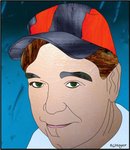I go far into my childhood for a sense of a failure of courage when I felt victimized for not responding willingly to my parent’s urgings and downright directives that I become a medical doctor. When I resisted--as in not getting top grades in science and math (prerogatives for medicine) in elementary and high school--I was mistreated by them in some way. I was yelled at, they entered disparaging responses in my report cards returned to my teachers or I just got the silent treatment.
I endured an atmosphere of worthlessness so long as those grades were low. I couldn’t tap my courage as a seven year old or even eleven years later on leaving high school to say med-school was no place for me. I felt abandoned by my parents, so long as I could not please them in their only request of me: “…become a doctor so you can make us proud.”
Those subjects that required creativity such as English Composition, Sociology, Psychology or reports in Modern History gained me excellent grades. Those subjects didn’t matter to them and as a result, I spent most of my time feeling insecure and mistrusting of my ideas and dreams. Any family discussions of these were immediately replaced with questions about my sincerity toward becoming a doctor, the only goal from them for me.
The result was I hardly ever spoke about what I really wanted to do—be creative—with anyone. I shunned intimacy with best friends, girl friends and even trusted teachers or athletic coaches. I spoke the family line: “I’m going to be a doctor!”
I knew more about my acquaintances’ aspirations and how they were going to achieve them than I did my own. I carried an empty feeling inside me whenever I thought or talked about becoming a doctor. I had all the medical books money could buy, primarily as Christmas and birthday gifts from my parents. Gray’s Anatomy weighed in at several pounds but, the only thumb-worn pages were those picturing external female body parts. That book sat on my bookshelf with others of that ilk surrounded by dozens of model airplanes I built and painted—creativity on display? I should say so.
I’ll admit that my “inner child” was being slowly smothered as I grew up.
When I was with others, I was fun-loving and free spirited, a pixie, an elf, a “Pied Piper” bringing others to all sorts of activities. I led people on cave explorations; “spelunking” as it’s called. I formed a band with me playing my dad’s trumpet, having no idea how to play it but, sounding pretty good anyway. I created war stories and used my family’s 1954 Buick as a four engine bomber, even “bailing out” over
But, get me home and I was neglected and ignored unless I was talking medicine or “operating” on my sister’s dolls. I tried being humorous and joyful at home but, that usually was met with distain or long stares. If I wasn’t practicing my piano (“We’ve paid a lot of money for those lessons”) or my penmanship (“See, your handwriting is so bad it’s obvious you’ll be a doctor”) or sitting at my student desk staring at books, then love was withheld, diminished or diverted somewhere else. “Why can’t you be more like your sister?” was a common utterance.
I was criticized and chastised for anything not measuring to their standards. “If you don’t get your elbows off the table, then I’m gonna insert razor blades, sharp side up on the table edge to teach you a real good lesson you’ll never forget!” “Sit up straight!” and the classic, “Children are to be seen and not heard!” was literally beaten into me. It wasn’t long before I began admonishing and punishing myself for my transgressions.
I remember hearing, “BOY?!” shouted up to me by my dad from the bottom of the stairs and feeling my heart leap as I scurried out of my room to find out what I’d done this time. Maybe I’d forgotten to take out the trash or left a can of paint open or missed a spot in the two acre lawn I mowed or left water marks on one of the car’s tires when I washed it. Whatever I did, I was afraid of the consequences.
I wasn’t physically beaten in those days; it was the mental anguish I feared the most. “How could I have… (insert here any manner of actions? Why was I so stupid? How could I miss something so small?” were thoughts that raged within me. It wasn’t enough that I was called “Dumb head” or Knucklehead” or told “You’re not going to amount to much” if I didn’t get these things done right.
To ensure I wouldn’t forget my lesson this time, I found ways to inflict pain on myself as physical punishment. For instance, in returning to my room, I would deliberately slam my knuckles into the sharp edges on the door jamb, causing blood to issue forth, swellings to rise and bruises to be left behind. Or, I might kick my toes into the bedstead. I might even slam my fingers in the drawers of my desk. I just wanted some physical pain to match the mental and spiritual pain inflicted on me. It made sense for my body to hurt and make me cry rather than just having words do me in.
Since I was doing so many things wrong—household chores and poor grades—I was questioning my existence. I even went public in eight grade geography class when my teacher made a statement about some mystery regarding my birthplace,
A Failure of Courage, Part 2 follows soon

1 comment:
Good job of writing up your good reflections, Dick. You're getting below the surface.
Merry Lee
Post a Comment